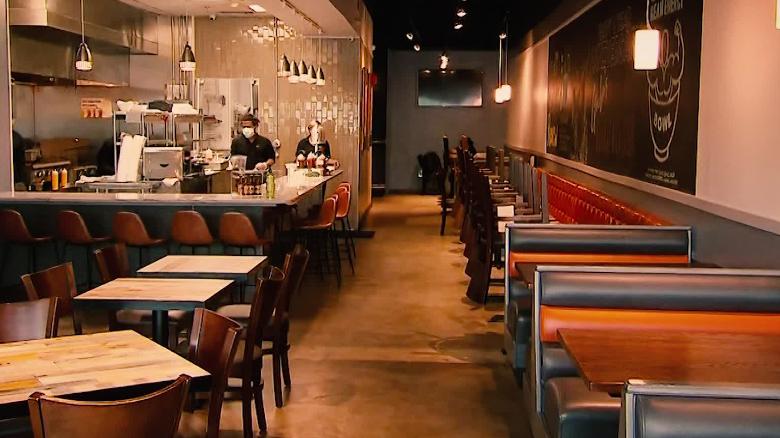Black businesses are still having a hard time securing loans during the pandemic

When the coronavirus pandemic hit the United States, little did business owners and corporations know that it is going to have a drastic effect on their businesses and finances. In fact, the pandemic did not only affect most business finances but also initiated some changes in how the business operates. Many businesses are forced to work from home, and others are forced to attach delivery services and pickups to their services. Unfortunately, some businesses are so much hit that their survival is dependent on either grants, loans, or other financial supports they can get. Among the worst-hit businesses is black-owned businesses.
According to the analysis of the government data carried out by Robert Fairlie of the University of California, Santa Cruz, more than 40% of black-business owners revealed that they were forced to close down and stopped working in April when the virus was deadly. However, only about 17% of white-owned businesses suffered the same predicaments.
Furthermore, research revealed that one of the major reasons black-owned businesses find it difficult to survive in this period is because they lack easy access to loans. With their lack of financial ability, only a few were able to move their business online. Additionally, employees in black-owned businesses are relatively lower than in other businesses. Also, most black-owned small businesses are either retail or restaurant. This is why the effect of the virus is more pronounced among them.
Ken Harris, president of the National Business League, an organization founded by Booker T. Washington in 1900 added that “Most lack the capacity, scale and technical assistance needed to survive a pandemic.”
Reports from some black-owned businesses that could not get loans
Following the ban on gyms in Mid-May, Eric Oliver, the owner of the Beyond Exercise in Oakley commented that :
“I was worried about my employees, how are they going to survive this.”
“We’re a service business, so if people aren’t coming through the doors, we are not making any money,” Oliver said
In a bid to save his business, Oliver applied for a loan from the federally funded loan initiative for small business owners called Paycheck Protection Program. He reported that:
“We were able to secure the loan on the first round,” Oliver said. “Fortunately I had a good banker and she helped us through the initial process, which was extremely stressful at first. The rules just seemed like they were changing on the application. We didn’t know what to turn in. She helped guide us.”
While Oliver was able to get his loan, this is not the same for other black business owners. In fact, Oliver is only one out of a thousand black business owners that are denied access to the loan. For instance, the owner of AJ's Cheesesteaks in Norwood, Ty Velez said when he applied for the loan, he was denied the loan after spending a lot of time trying to get it.
“There were a lot of red tapes involved,” said Velez. “I think that it was a lack of relationship with the bank. We are a small, small business. Our budgets are small, our payrolls are smaller, so I think the lack of relationship that goes with that business and that bank was kind of preventing us from not getting callbacks, not getting returned emails, etc.”
Reasons why black business owners are denied loans
Eric Kearney, the CEO and chamber president said there are four reasons black-owned businesses find it difficult to secure loans. These include:
Lack of a solid relationship with any of the banks involved in the disbursement of the money
Lack of a solid relationship with any of the accountant working in these banks
Lack of a solid relationship with a lawyer that can help influence the loan process and make it a successful one.
Some of the black-owned businesses suffer from technological gaps. This implies a situation whereby the business is not registered on QuickBook or other technological software. Also, some black-owned businesses lack technological innovation and management.
Kearney also revealed that more than 90% of black-owned businesses have one or two persons managing them. “Oftentimes those types of businesses are focused on the business," Kearney said. "Meaning if they are producing widgets they are out there making widgets. If they are making pastries or pies they are out doing that. And there is not a lot of time or resources to do the back-office things or to do those things which will help them develop those types of relationships."
In addition to this, Kearney said most of these businesses do not have enough reserves or shareholders' equity. As such, they are not capitalized enough to qualify them for the loan. “There is a gap in terms of wages, technology, and education,” said Kearney. “We have to concentrate on, in Greater Cincinnati, relationship building. That is between large and small businesses, white and people of color businesses, wealthy and small businesses.”
On all these shortcomings, Velez of AJ’s Cheesesteaks agreed. However, he revealed that most black business owners were not enlightened on the requirements for the loan.
“There was nobody to really talk to or break the process down for us,” said Velez. “To say, 'Okay, who do we need to talk to? Where do we need to go? How do we do this? How do we cut through the red tape?'”
Valez, among others, said he applied for a PPP loan with the intention of using the money to get more supplies because of the ravaging impact of the pandemic. When denied the loan, Valez said he can only hope that the community remains open.
“It's been the community, 100%, that has come out and supported us, shared our Facebook posts, Instagram posts," Velez said. "They have completely got their friends to come, brought their children, dogs, I mean literally, the community has kept our doors open.”


Be the first to comment!
You must login to comment